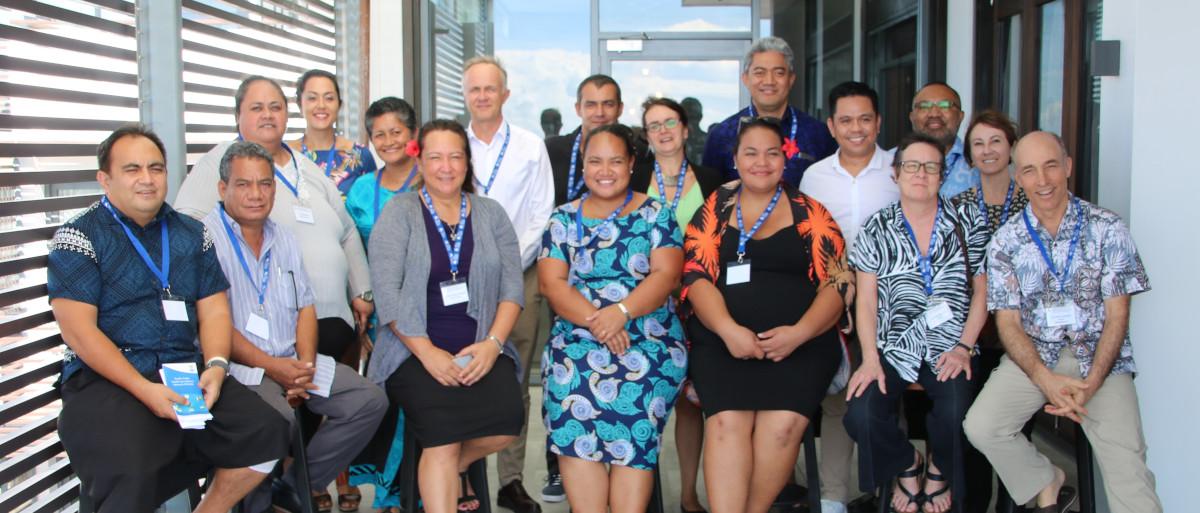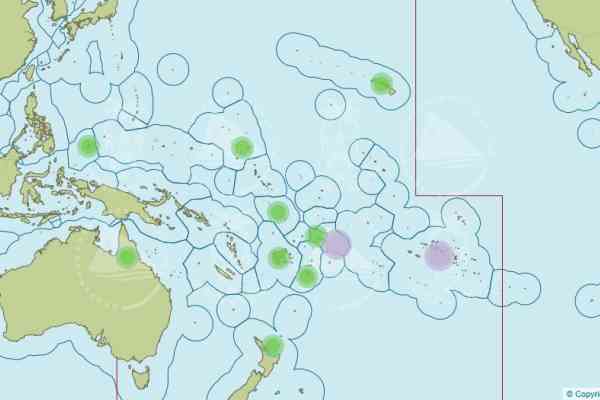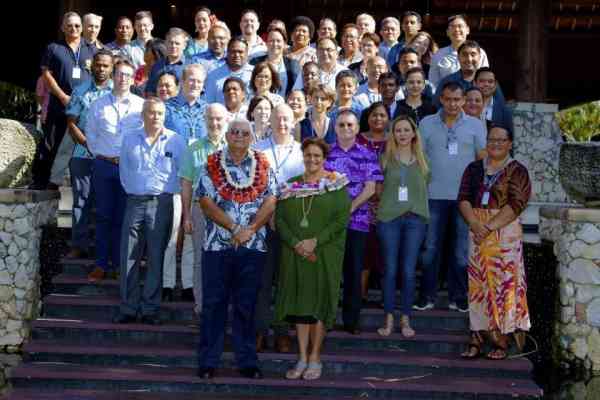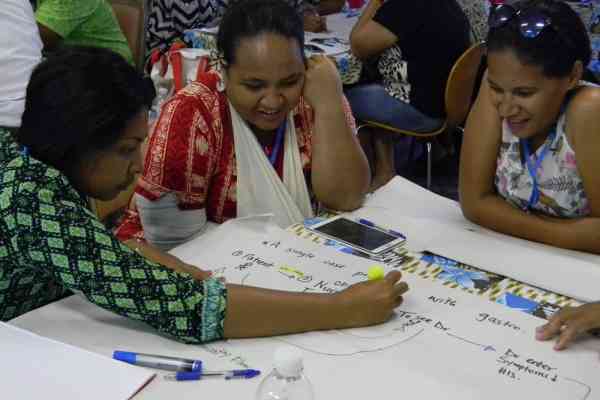New Postgraduate Diploma and Masters in Field and Applied Epidemiology programmes were announced at the Pacific Public Health Surveillance Network (PPHSN) Coordinating Body Meeting in Nadi, Fiji.
“The FNU Senate has approved the newly reviewed Post Graduate Diploma and Masters of Applied Epidemiology Programme. Students who complete the Postgraduate Certificate in Field Epidemiology programme (formerly called the Data for Decision Making [DDM] programme) will qualify to enrol in the Diploma, and those who score an average of 65% will qualify to enrol in the Masters programme,” Dr Donald Wilson, Head of the School of Public Health and Associate Professor of Epidemiology and Biostatistics at Fiji National University (FNU), explained.
These new diploma and masters programmes, which are accredited by FNU, form part of a 3-tier capacity development programme of PPHSN on Strengthening Health Interventions in the Pacific (SHIP).
The first level of the SHIP programme, known as the Data for Decision Making (now the Postgraduate Certificate in Field Epidemiology), which was revived by PPHSN partners in 2013 in response to a request from Pacific Ministers of Health, caught a lot of interest in the region. More than 300 health officers from 17 Pacific Island countries and territories (PICTs) had completed at least one of the 5 modules of this course at the end of 2018.
The PPHSN is a voluntary network of countries and organisations aimed to improve public health surveillance and response in the Pacific in a sustainable way.
Dr Jojo Merilles, Team Leader of the Surveillance, Preparedness and Response Programme at Public Health Division in SPC, stressed that “it is really important for countries and for everyone to look at PPHSN as a network that they own and not something that the donors and technical service agencies provide. It is a network by and for the Pacific Island Countries”.
Member countries of the network identify the PPHSN as a valuable resource in terms of diseases surveillance and outbreak response.
Dr Suria Puafolau from Princess Margret Hospital, Ministry of Health in Tuvalu, said that “Tuvalu has been a member of PPHSN from the beginning, so it has been about 22 years now. I was part of the group who took the DDM course in Tuvalu, it improved our capacity especially in terms of surveillance within the country, to analyse data that we have and how to respond to disease outbreaks, plus report back in a timely manner”.
Advancements of the PPHSN work in the Pacific is made possible with financial support from key partners of the network, which includes the Agence française de développement (AFD), the Australian Department of Foreign Affairs and Trade (DFAT),the New Zealand Ministry of Foreign Affairs and Trade (MFAT) and the US Centers for Disease Control and Prevention (CDC).
The network includes six key services to support Pacific Island countries and territories with the surveillance and response to outbreaks:
- PacNet (for alert and communication).
- Pacific Syndromic Surveillance System (for outbreak detection)
- LabNet (for disease verification and identification),
- EpiNet (for preparedness and response),
- PICNet (for infection prevention and control), and
- SHIP-DDM (for capacity building and strengthening).
Recommendations from the PPHSN Coordinating Body Meeting will be further discussed at the upcoming Pacific Heads of Health Meeting later this week.
Media contact:
Christelle Lepers, Surveillance Information and Communication Officer, SPC | E : [email protected]
Sonal Aujla, Communications Assistant, SPC | E : [email protected]
Background information:
PPHSN was created 23 years ago (in December 1996) under the joint auspices of the Pacific Community (SPC) and the World Health Organization (WHO) in close consultation with the 22 PICTs and several regional partners.
Its primal focus is communicable diseases, especially those prone to outbreak, such as dengue fever.



